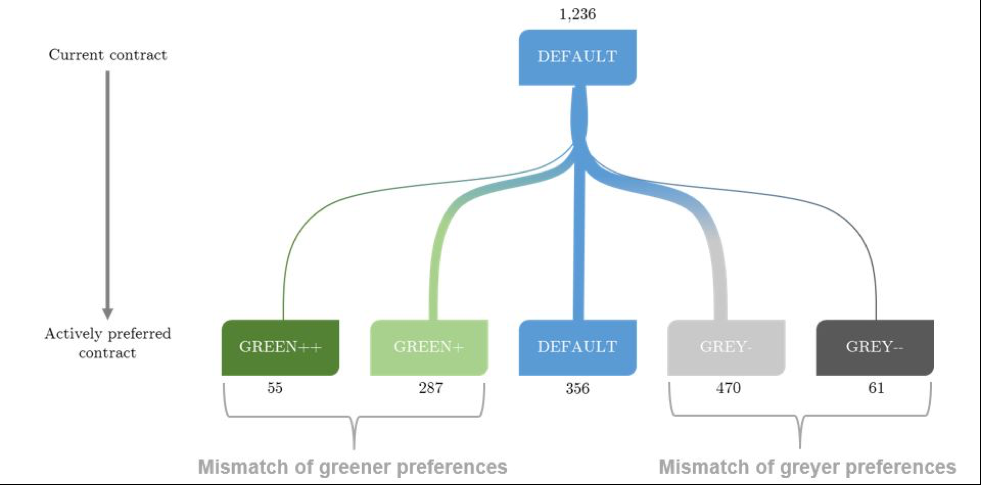Nudging the Poor and the Rich - A Field Study on the Distributional Effects of Green Electricity Defaults
Choice defaults have become an increasingly popular and seemingly inexpensive public policy tool. Yet, there is scant knowledge on the distributional consequences of such nudges for different groups in society. A field study with a Swiss utility provides novel empirical findings highlighting the need for a careful evaluation of choice defaults.
Choice defaults, nudging you into a specific behavior if no active choice is taken, are popular in various fields like for instance organ donation or pension plan design. Moreover, several electric utilities have now started to sell green electricity via default contracts. Such defaults are intended to increase the demand for more environmentally friendly green electricity. Furthermore, defaults are supposed to help individual consumers with positive preferences for green electricity to act according to their preferences without having to take the effort to actively make the respective decision. On the other hand, the use of defaults preserves the freedom of choice for those who wish to opt out. Hence, a green default may increase societal and individual welfare.
The effects of choice defaults on behavior are strong and well documented (i.e., people tend to stick to the default option), but much less is known on the preference matching effects. Do defaults correspond to people’s actual preferences and do they instigate active switching for those who would like to choose another contract? Hence, our main research question is whether a default distort choices, and if so, whether certain groups in society are particularly affected by this behavioral regulation.
In a field study with a Swiss utility, we combine field and survey data to assess whether actual preferences for a contract match with households’ current electricity contracts. By analyzing the frequency and nature of choice distortions for different groups in society, we assess the distributional consequences of the choice default in our setting (see Figure below for a basic illustration). Moreover, using households’ electricity consumption data and the carbon intensity of the different contracts we examine whether the choice default in this setting helps curbing harmful environmental externalities.
Our results show that the green choice default affects contract choices in several ways. On the one hand, it hinders choices of less expensive, greyer contracts. This distortion especially concerns poorer households with a low socio-demographic status, particularly in terms of formal education. On the other hand, the green default affects households with pro-environmental preferences who do not opt out of the default due to informational problems. Both distortions have a negative impact on consumer welfare. Ultimately, we show in a straightforward cost-benefit analysis that the green choice default is successful at reducing environmental externalities; however, the abatement comes at costs that are higher than recently estimated social costs of carbon. Our findings thus unfold some caveats for green choice defaults and stipulate further discussions on how socially tenable behavioral interventions should be designed.
This research is supported by the Swiss Federal Office of Energy (SFOE) under the research program `Energy - Economy - Society (EES)'. More information is available in a external pagefinal report of the complete project.call_made
The people involved in this project are Claus Ghesla, Manuel Grieder, and ESC Member Renate Schubert.
Prof. Renate Schubert is head of the Chair of Economics. The research and teaching activities of the Chair of Economics focus on explaining individuals’ and groups’ behavior in the context of energy and the natural environment, on impacts of these behaviors as well as on recommendations for welfare-increasing interventions.

